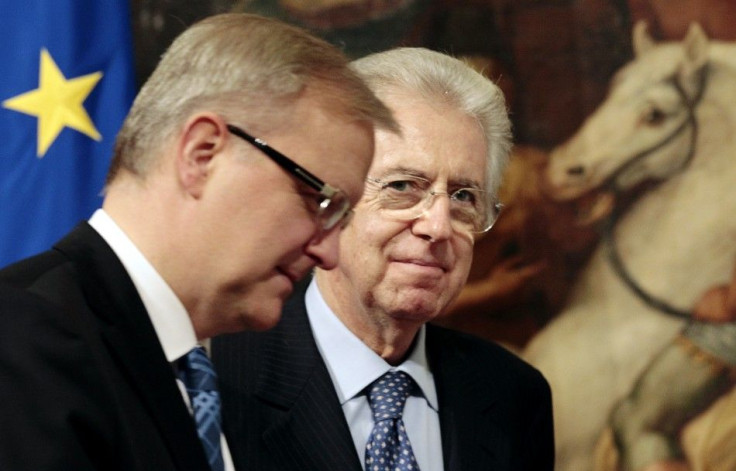Italian Borrowing Rates Skyrocket in Market Action Friday

The Italian government was forced to pay out a record 6.5 percent in interest rate at an auction on Friday, thereby putting even more pressure on the nascent government of Prime Minister Mario Monti.
Although Italy was able to raise the full 10-billion euros ($13.3 billion) in financing it sought, the auction yield on the six-month paper nearly doubled versus an auction from one month ago when the rate was 3.5 percent.
As a result, Italian stocks dropped while bond yields soared.
Yields on Italy’s two-year Buoni del Tesoro Poliennali (BTP) Treasury bonds jumped to more than 8 percent (a record high), despite apparent purchases by the European Central Bank.
The Italian debacle came on the heels of a German Bund auction that nearly collapsed.
Padhraic Garvey, rate strategist with Dutch bank ING in Amsterdam, told Reuters: The pricing [in Italy was] awful. The object of the exercise this morning was to get the job done and they've done that, but that's about the only positive thing to say.
Garvey noted that Italy plans an 8 billion euro bond auction next Tuesday.
For the BTP auctions next week, we'll have more of the same -- they'll probably get it done at a concession, he said.
Meanwhile, Monti’s new government has been given the unenviable task of straightening out Italy’s massive debt and deficit crises by imposing a series of tough austerity measures and by implementing structural reforms.
The Italian scenario is further complicated by very weak economic growth -- GDP growth has averaged only about 0.3 percent over the past ten years.
Reuters reported that the high yields may threaten the Rome government’s plans to issue about 440 billion euros in new bonds next year.
Meanwhile, despite the seemingly endless wave of bad news regarding the euro currency, European Economic and Monetary Affairs Commissioner Olli Rehn remains cautiously optimistic that the Eurozone will survive intact.
It is clear that the leaders of the euro area have underlined very firmly that they will do whatever it takes to ensure that the future of the euro is solid and stable, he told reporters.
Italy is a founding member state of the European Union and a founding member of the euro and a central part of the euro and it will remain so in the future.
He also said Italian economic reforms under Monti are going in the right direction.
Monti, who met with Germany chancellor Angela Merkel and French president Nicolas Sarkozy on Thursday to promise that Rome will have a balanced budget by 2013, met with Rehn on Friday.
© Copyright IBTimes 2024. All rights reserved.











